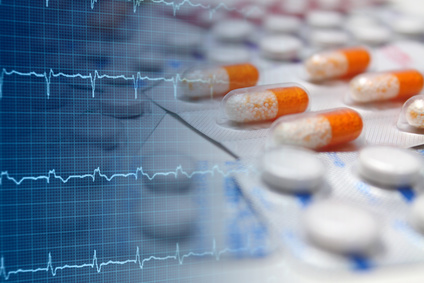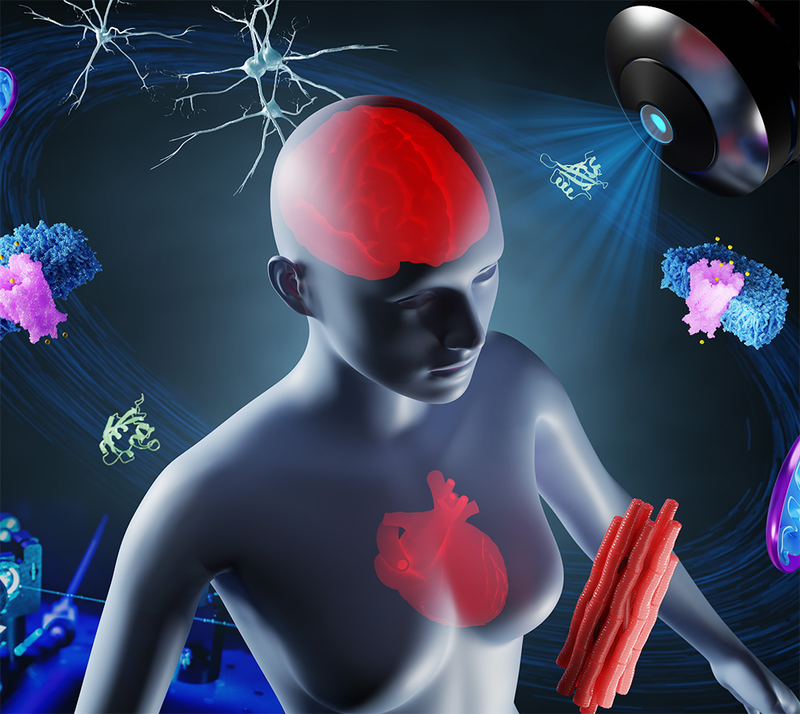Newly developed drugs and therapies often have side effects on the heart. For this reason, new drug candidates undergo extensive preclinical testing before clinical trials and use, with the aim of eliminating potential side effects as far in advance as possible. However, current methods usually only cover a subset of potential cardiac side effects. It is therefore essential to improve these tests in order to be able to predict the risk of adverse effects with a high degree of specificity and sensitivity.
Tissue from pig hearts can be stored for up to two weeks for testing using a new method
A team led by DZHK scientist Prof. Tobias Brügmann, research group leader at the Institute of Cardiovascular Physiology at the University Medical Center Göttingen (UMG), in cooperation with Prof. Tim Salditt, also a DZHK scientist and director of the Institute of X-ray Physics at the University of Göttingen, has now developed a method to keep fresh slices of intact heart tissue in culture for several days while demonstrably maintaining their vitality and functionality. This makes it possible to identify the effects of potential new drug substances on the electrical and contractile properties of heart muscle cells and on the general tissue architecture before the substances are used for analysis in living organisms.
Both scientists are members of the Göttingen Cluster of Excellence "Multiscale Bioimaging: From Molecular Machines to Networks of Excitable Cells" (MBExC). The aim of the Cluster of Excellence is to understand the relationship between heart and brain diseases. Since January 2019, it has been funded as part of the Excellence Strategy of the German federal and state governments.
About the method
The scientists first prepare thin (300 µm) tissue slices from pig hearts. Pig hearts are very similar to human hearts, from which, unlike other organs, it is difficult to obtain samples for drug studies. Using a newly developed cultivation approach, the scientists were able for the first time to keep the tissue slices, which consist of intact heart muscle tissue, in an incubator for up to two weeks. The scientists were able to show that not only the external shape of the heart muscle cells is preserved over the entire period, but also their vitality and functionality. This is an absolute prerequisite for studying the effects of various substances, such as new drugs or therapeutic interventions.
The general suitability of the test was first tested with drugs whose effects on the heart are already known and well described. The scientists then tested whether they could identify those drugs among several that have side effects on the heart. "Identifying unwanted side effects on the heart as early and reliably as possible is very important in order not to jeopardise the health of patients in clinical trials later on. It also helps to reduce the cost of drug development," explains Prof Brügmann. "We are now in a position to test drug substances and new therapeutic approaches much more comprehensively in advance for their suitability for later use in clinical trials," says Brügmann.
Original publication: Shi R, Reichardt M, Fiegle DJ, Küpfer LK, Czajka T, Sun Z, Salditt T, Dendorfer A, Seidel T, Bruegmann T (2023) Contractility measurements for cardiotoxicity screening with ventricular myocar-dial slices of pigs. Cardiovascular Research, Volume 119, Issue 14, October 2023, Pages 2469–2481. DOI: 10.1093/cvr/cvad141
Source: Press release University Medical Center Göttingen


